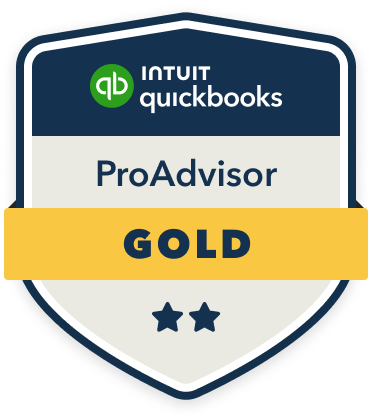Bill Entry Best Practices: Ensuring Consistency and Accuracy Every Time
Bill Entry Best Practices: Ensuring Consistency and Accuracy Every Time
Small business owners know the pain of bill entry errors: the wasted hours hunting for missing bills, the stress of late payments, and the constant burden of fixing mistakes that creep in with every manual entry. For many, the belief is simple and stubborn—bill entry mistakes cost too much time and money. But with the right practices and support, this cycle can be broken, bringing relief and renewed confidence to your financial operations.
“For many small businesses, calling invoicing a headache would be an understatement. Reliable cash flow and streamlined billing are critical, but entry errors and payment delays threaten stability and growth.” This quote reflects the common concern small business owners voice: managing bills is not just paperwork—it’s the lifeblood of your business.
The Real Cost of Bill Entry Mistakes
Mistakes in bill entry can trigger a domino effect:
– Missed or late payments lead to damaged vendor relationships and costly late fees.
– Manual errors create confusion, forcing you or your staff to spend extra hours hunting down paperwork or reconciling mismatches.
– Disorganized bills risk compliance issues and make financial reporting a time-consuming chore.
The emotional toll is just as real: the frustration of chasing paperwork and the constant anxiety about what might slip through the cracks. But these challenges are not inevitable.
Five Best Practices for Consistent, Accurate Bill Entry
-
Use a Standardized Bill Entry Format
– Consistency is the foundation of accuracy. A standardized format ensures every bill includes essential information: your business details, vendor information, invoice number, issue date, itemized goods or services, payment terms, and total amount due.
– With a clear format, you and your vendors can quickly reference details, reducing confusion and speeding up payments. -
Automate with Digital Tools
– Manual entry is error-prone and slow. Digital bill entry tools and accounting software like QuickBooks streamline the process, automatically populating fields and flagging inconsistencies.
– Automation minimizes human error, ensures bills are created and delivered on time, and makes tracking much easier. -
Set Clear Payment Terms and Deadlines
– Every bill should clearly outline payment methods, due dates, and any penalties for late payments.
– Transparent terms eliminate ambiguity, encouraging prompt payments and simplifying cash flow management. -
Maintain Detailed Descriptions and Itemization
– List each product or service with quantities, prices, and brief descriptions. The more informative the entry, the less likely you’ll face disputes or confusion.
– Detailed bills help both you and your vendors understand charges, making reconciliation and auditing straightforward. -
Implement Effective Record-Keeping
– Organized records—both digital and hard copies—are essential for accurate financial reporting and compliance.
– Regularly update and back up your bill files. Good record-keeping supports audits, taxes, and strategic decision-making.
Relief Through Expertise: How a Fractional CFO or QuickBooks ProAdvisor Can Help
Even with best practices, managing bill entry can feel overwhelming, especially as your business grows. This is where professional support offers game-changing relief.
-
Fractional CFOs bring high-level financial expertise at a fraction of the cost of a full-time CFO. They analyze your bill entry processes, identify bottlenecks, and implement systems that fit your business needs. A fractional CFO ensures you’re not just entering bills correctly, but optimizing every aspect of your cash flow and reporting.
-
QuickBooks ProAdvisors specialize in setting up and customizing QuickBooks for your business. They train your team, automate repetitive tasks, and monitor for errors. With a ProAdvisor, you gain a trusted partner who keeps your bill entry consistent, accurate, and integrated with the rest of your financial operations.
Outsourcing to these experts means you spend less time fixing mistakes and more time growing your business. The relief is tangible: no more late nights reconciling bills, no more surprises at tax time, and a steady pulse on your cash flow.
Challenging the Belief: Bill Entry Doesn’t Have to Be a Costly Burden
It’s common to feel that bill entry mistakes are an unavoidable cost of doing business. But the reality is, with modern tools and expert support, these errors—and the stress they bring—can be massively reduced.
- Automation and consistency eliminate the root causes of most entry mistakes.
- Clear systems and professional oversight guarantee that bills are entered correctly the first time, every time.
- The right practices free you from the endless cycle of fixing errors and chasing paperwork.
Imagine opening your books at the end of the month and seeing every bill accounted for, every payment processed on time, and every record perfectly organized. That’s not wishful thinking—it’s what best practices and expert support make possible.
Closing Thoughts
Bill entry is more than a back-office task; it’s a cornerstone of your business’s financial health. By adopting standardized formats, embracing automation, setting clear terms, itemizing thoroughly, and keeping organized records, you create a system that works for you—not against you.
And when you partner with a fractional CFO or a QuickBooks ProAdvisor, you multiply these benefits, gaining peace of mind and reclaiming the time and energy to focus on what matters most: building your business.
Invoicing and bill entry do not have to be a headache. With the right approach, you can ensure consistency and accuracy every time—turning a source of stress into a pillar of strength for your business.
By investing in professional financial guidance, you’re not just preparing for a sale. You’re creating peace of mind, stability, and options for yourself and those who matter most.
Don’t wait for “someday.” Start building your sellable business today.





